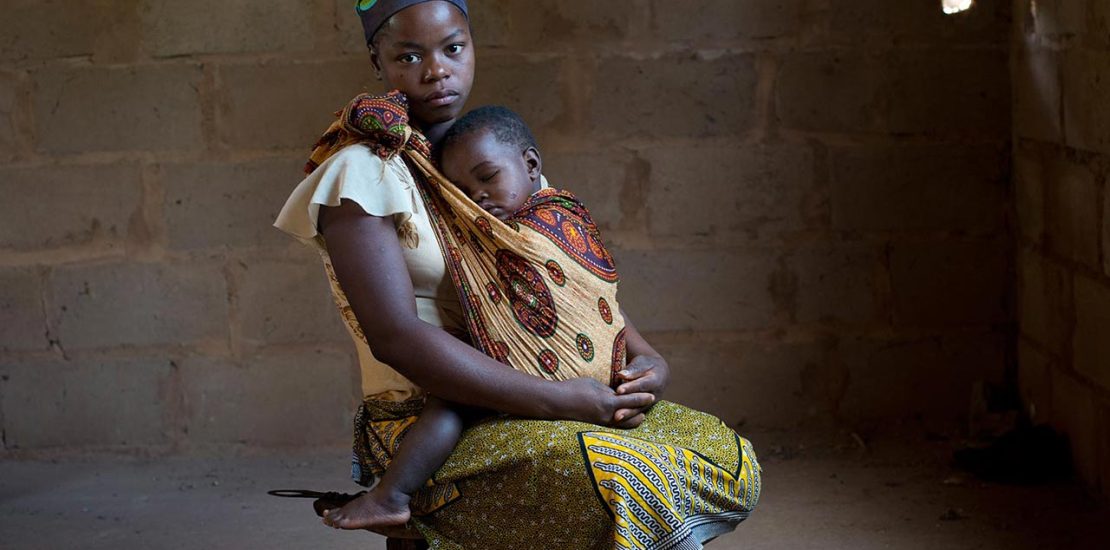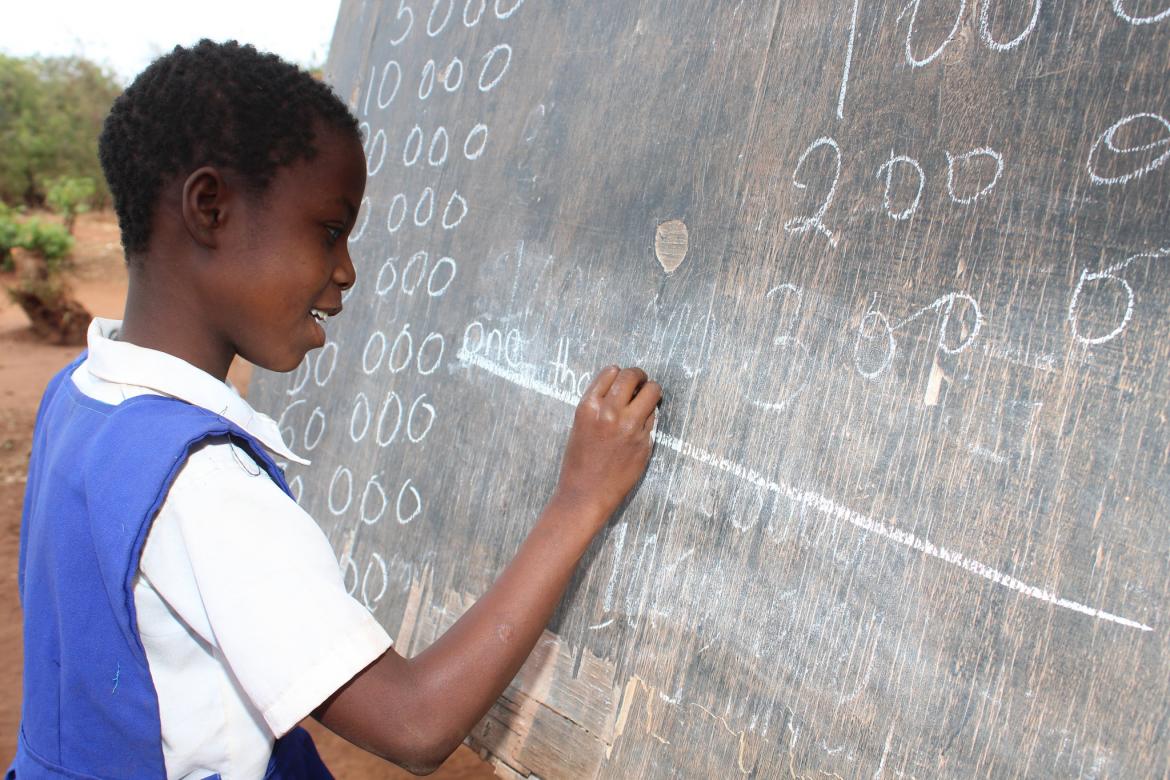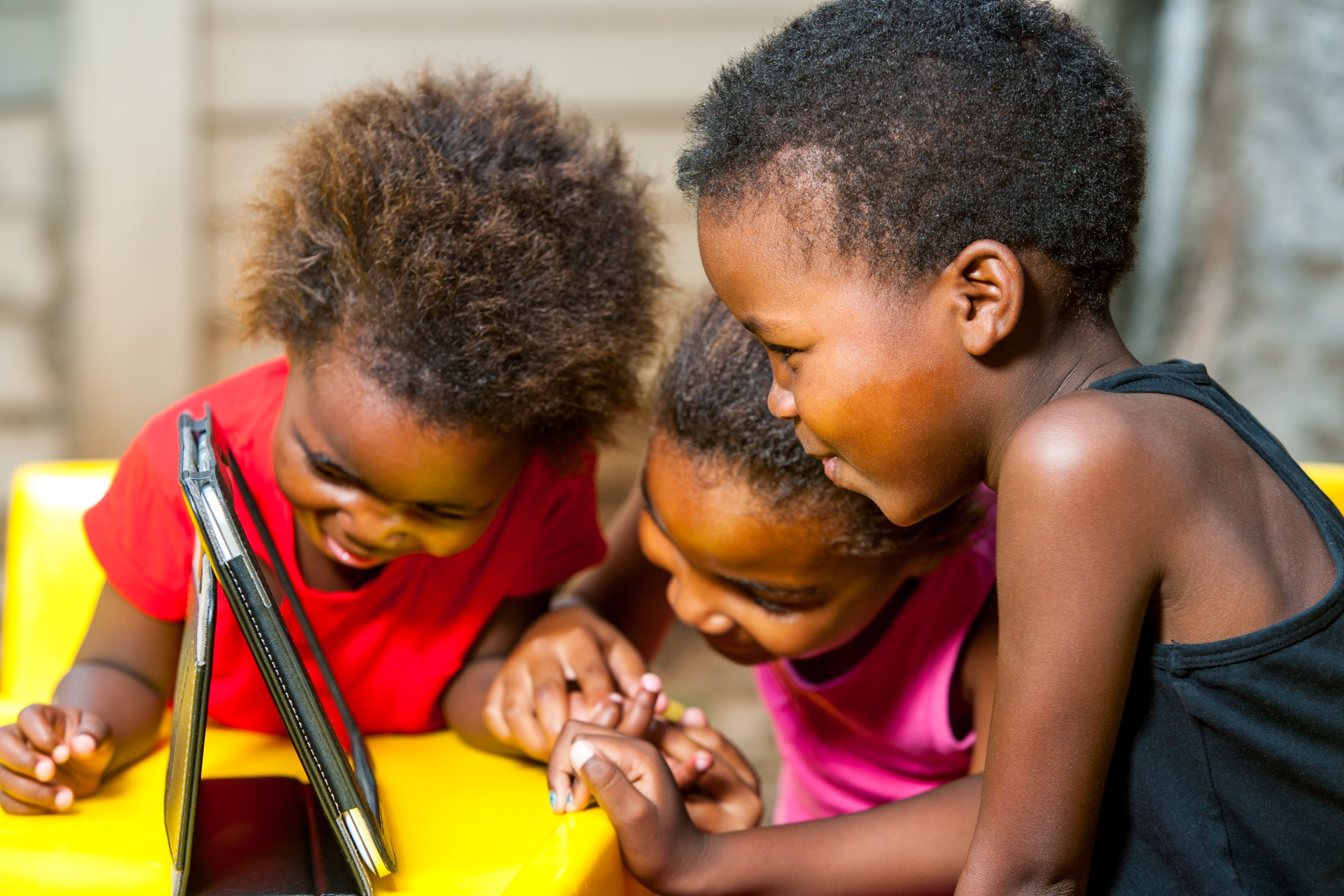Empowering Nigeria’s Girls: Vision for a Brighter Future
- October 11, 2024
- Posted by: Hub Admin
- Categories: Article, Human Rights, Latest News & Events

By Tine Bello
As the world celebrates the International Day of the Girl Child, we are reminded of girls’ important role in shaping our society. This day draws attention to the challenges and hardships faced by millions of girls worldwide, who are often silenced by cultural, traditional, religious, and societal norms. While there is progress showing that thousands of girls have found their voices in spaces that once stifled them, millions of others remain bound by the same oppressive forces. This is why we must amplify the power and champion her vision for the future.
This year’s theme, “Girls’ Vision for the Future,” calls for action to empower girls to realise their potential and break free from the challenges that hold them back. In Nigeria, millions of girls continue to face obstacles rooted in culture, tradition, poverty, religion, and gender inequality.
The Plight of Girls in Nigeria
Unfortunately, despite their potential, the girl child continues to face systemic intimidation. They grapple with child marriage, unwanted pregnancies, female genital mutilation, violence, rape, and bullying. Education is often seen as an afterthought for them, and they are raised to believe their place is in the kitchen or the bedroom. These limitations stifle their potential and repress their voices. It is essential to amplify the voices of the girl child and work towards dismantling all the barriers that hinder their progress.

In Nigeria, one of the most pressing challenges girls face is child marriage. According to the United Nations Children’s Fund (UNICEF), Nigeria has one of the highest rates of child marriage in the world, with 44% of girls married before the age of 18. This practice is more common in northern Nigeria, where cultural and religious factors often drive the practice. However, empowering girls through education and creating economic opportunities for families will help to reduce child marriage.
Nigeria has made strides in improving access to education, but millions of girls, especially in rural areas, remain out of school. According to UNESCO, 10.5 million children in Nigeria are out of school, and girls comprise a significant portion of this figure. In northern Nigeria, the Boko Haram insurgency has exacerbated the situation, as schools have been targeted in attacks, with girls being the main targets, most notably the abduction of the Chibok and Dapchi girls and recently in 2023 over 30 schoolgirls were kidnapped from a boarding school in Katsina.
Poverty also plays a significant role, with many families unable to afford school fees or prioritising boys’ education over girls’. Addressing this issue requires investment in building safe and accessible schools, especially in conflict-affected regions. Additionally, scholarships and targeted programmes that encourage girls to stay in school, like the Safe Schools Initiative, should be encouraged and expanded.
As a woman, I write this feeling disappointed and utterly exhausted knowing what the girl-child has faced and is still facing in Nigeria despite advocacy for enforcement of the Child Rights Act and other gender bills – the girlc-hild has remained a target and is continually victimised.
Gender-based violence is another pervasive issue affecting Nigerian girls. From sexual harassment in schools to domestic violence and rape, girls are often vulnerable to abuse. We are equally facing a global femicide crisis. Nigeria’s inadequate data collection makes it difficult to determine accurate femicide statistics. DOHS Cares Foundation provides a glimpse: in 2024 alone, there have been 76 femicide victims and these are just a few of the reported cases. So many young girls have been targeted for reasons of their gender.
Female genital mutilation (FGM) remains a significant issue in parts of southern Nigeria, despite being outlawed. According to UNICEF, Nigeria accounts for the highest number of FGM cases globally, with millions of girls and women having undergone the practice. FGM has no health benefits and can lead to lifelong physical and psychological trauma. FGM must be eradicated through strict enforcement of the laws prohibiting the practice, such as the VAPP Act. Community education and advocacy can also help to change attitudes and protect girls from this harmful practice.
Poverty is one of the most significant challenges facing girls in Nigeria. Many girls from low-income families are forced into child labour or early marriages to relieve the economic burden on their families. They also lack access to essential resources such as sanitary products, which can cause them to miss school during menstruation. Economic empowerment programmes targeting girls and their families can help alleviate poverty. Initiatives that provide girls with entrepreneurial skills, mentorship, and access to financial resources will enable them to become self-reliant.

Real Stories of Struggle
Fatima Zakari, a 14 year old was pulled out of school despite her desire to continue her education and was forced into marriage with a 45-year-old man in Zamfara. Child marriage robs girls of their childhood, education, and health, as many are forced into early pregnancies, exposing them to significant health risks such as fistula and maternal mortality.
In early 2024, 15-year-old Zainab Yusuf became pregnant after being raped by a family friend and was forced out of school due to the stigma and compounded trauma of sexual violence.
Notable incidents include that of Mercy Vangervihi who was fast asleep in her home when she was attacked and raped by her 15-year-old classmate. Bamise Ayanwole was raped and murdered by a Lagos BRT driver. Vera Omozuwa was in a church when she was raped and killed by a group of men. Five-year-old Hannifa was abducted and killed by her teacher in Kano State. Sofiat Omowumi, a 16-year old girl, was lured by her boyfriend and killed for ritual purpose in Ogun State. 12-year-old Chinelo David was sexually assaulted by her uncle, a family member in Abuja.
These cases reveal a pattern of victimisation, sexual violence, abduction, and societal neglect of the girl-child in Nigeria, both at home, school, and in the community.
The Impact of COVID-19 on Girls
The 2020 lockdown during the COVID-19 pandemic saw a significant increase in cases of GBV, with many girls suffering in silence. In some cases, victims are blamed or shamed, further silencing them. There is a need for stronger legal frameworks and enforcement to protect girls from GBV. Girls should be educated about their rights and encouraged to speak out against violence.
Building a Better Future for Nigerian Girls
As we reflect on these challenges, let us explore ways to build a future where every girl can thrive. When girls find their voices and are allowed to pursue their dreams, they challenge gender stereotypes, break through societal barriers, and inspire future generations.
It is time to build toward a future where Nigerian girls can realise their vision. We must prioritise their education, health, and empowerment. Government policies must go beyond rhetoric and be effectively implemented to protect girls’ rights. Communities must be engaged in dismantling harmful practices, and families should be encouraged to invest in their daughters’ futures.
Embracing the Vision for a Brighter Future
As we commemorate this year’s International Day of the Girl Child, let us not just amplify the voices of Nigerian girls and girls worldwide, but actively work to build a society where they are safe, educated, and empowered to lead. The success of Nigeria rests on the success of its girls, and there is no better time to act than now. Today, let’s celebrate the dreams, strength, and resilience of girls everywhere. Let us reaffirm our commitment to breaking down the barriers that hold them back, ensuring that every girl, regardless of her background, has the opportunity to thrive and fulfill her potential. The future the girl child envisions is one of hope, equality, opportunity, progress, and boundless possibility. It is time the world wholeheartedly embraces and supports that vision and turns it into a reality.
